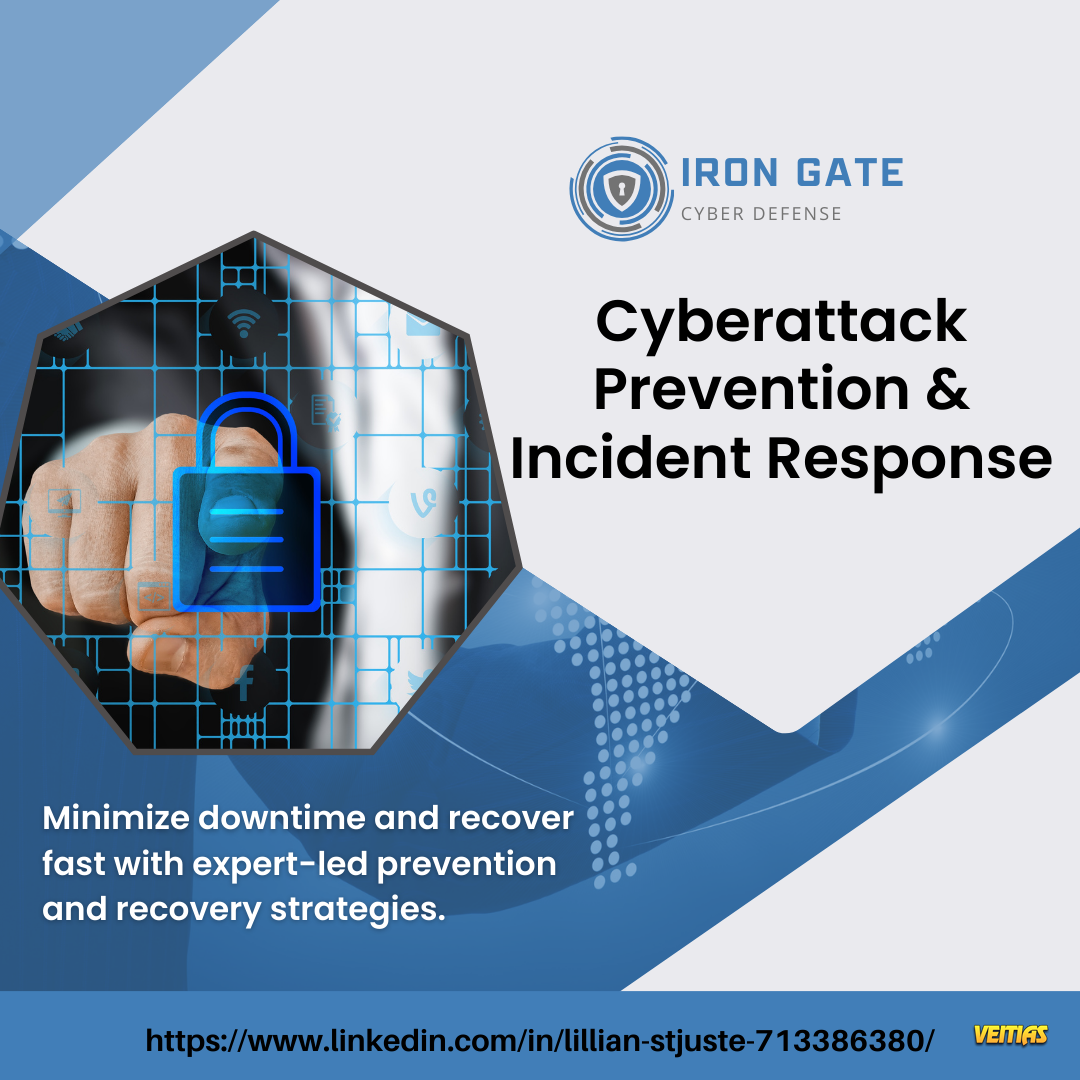Cyber Threat Prevention
Iron Gate Cyber Defense offers expert cybersecurity services including threat detection, monitoring, penetration testing, incident response, risk assessment, network security, vulnerability assessment, cyber threat prevention, intelligence analysis, cyberattack prevention, and digital infrastructure protection. Led by consultant Lillian StJuste, our cyber security agency delivers trusted security strategy and investigation solutions. Visit irongatecyberdefense.com.
Visit Us:- https://www.linkedin.com/in/lillian-stjuste-713386380/
Iron Gate Cyber Defense offers expert cybersecurity services including threat detection, monitoring, penetration testing, incident response, risk assessment, network security, vulnerability assessment, cyber threat prevention, intelligence analysis, cyberattack prevention, and digital infrastructure protection. Led by consultant Lillian StJuste, our cyber security agency delivers trusted security strategy and investigation solutions. Visit irongatecyberdefense.com.
Visit Us:- https://www.linkedin.com/in/lillian-stjuste-713386380/
Cyber Threat Prevention
Iron Gate Cyber Defense offers expert cybersecurity services including threat detection, monitoring, penetration testing, incident response, risk assessment, network security, vulnerability assessment, cyber threat prevention, intelligence analysis, cyberattack prevention, and digital infrastructure protection. Led by consultant Lillian StJuste, our cyber security agency delivers trusted security strategy and investigation solutions. Visit irongatecyberdefense.com.
Visit Us:- https://www.linkedin.com/in/lillian-stjuste-713386380/
0 Comments
0 Shares
2890 Views
0 Reviews









